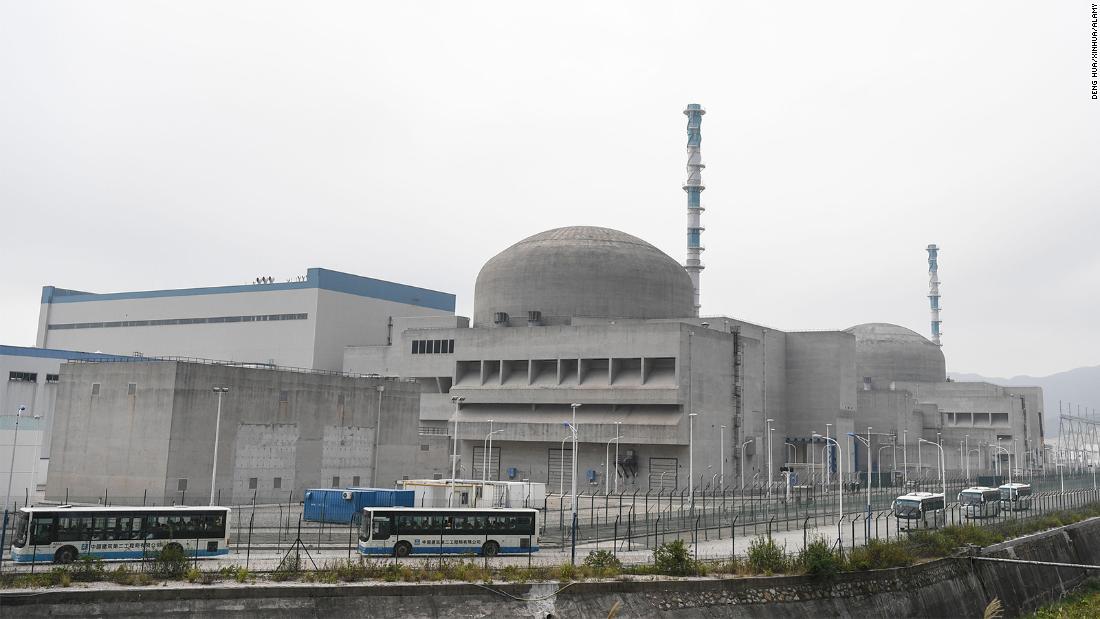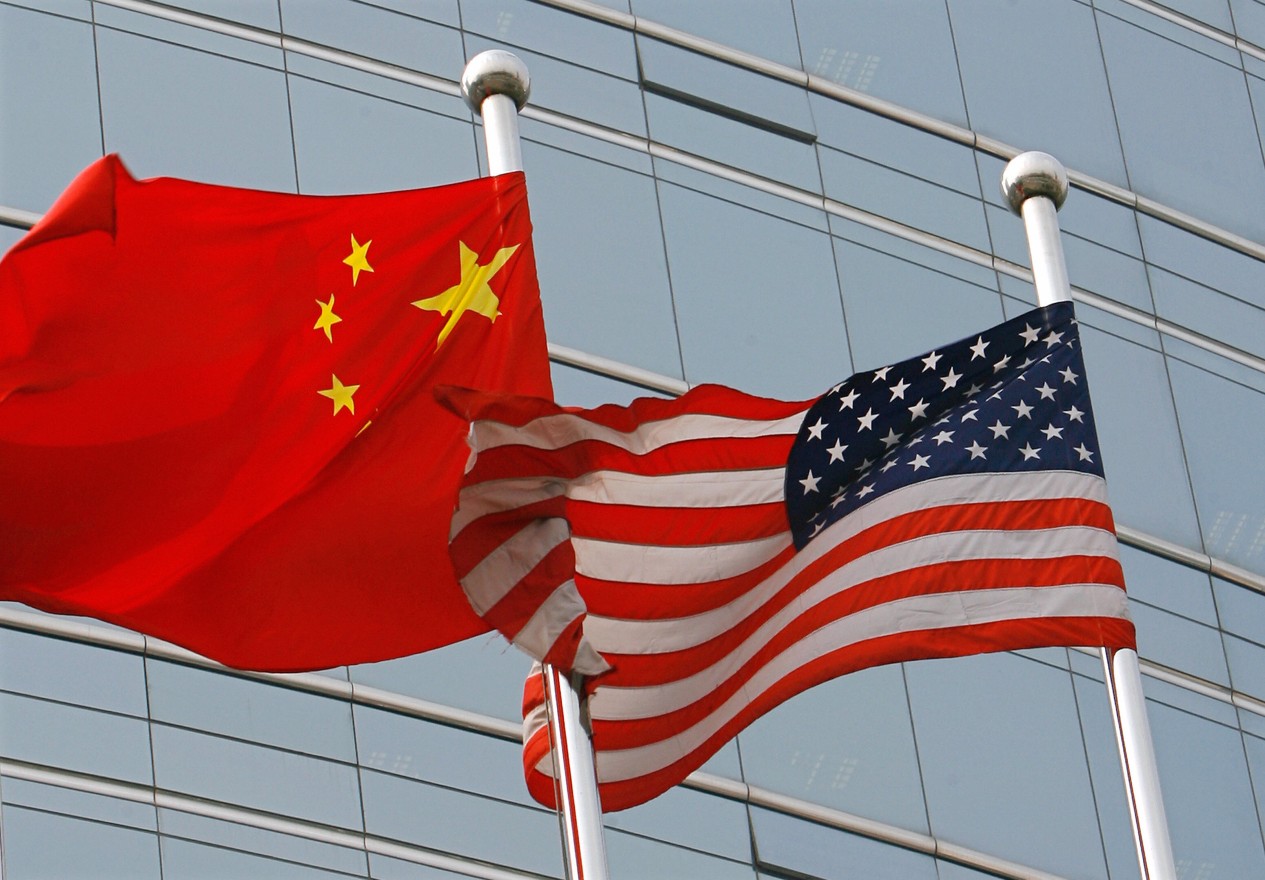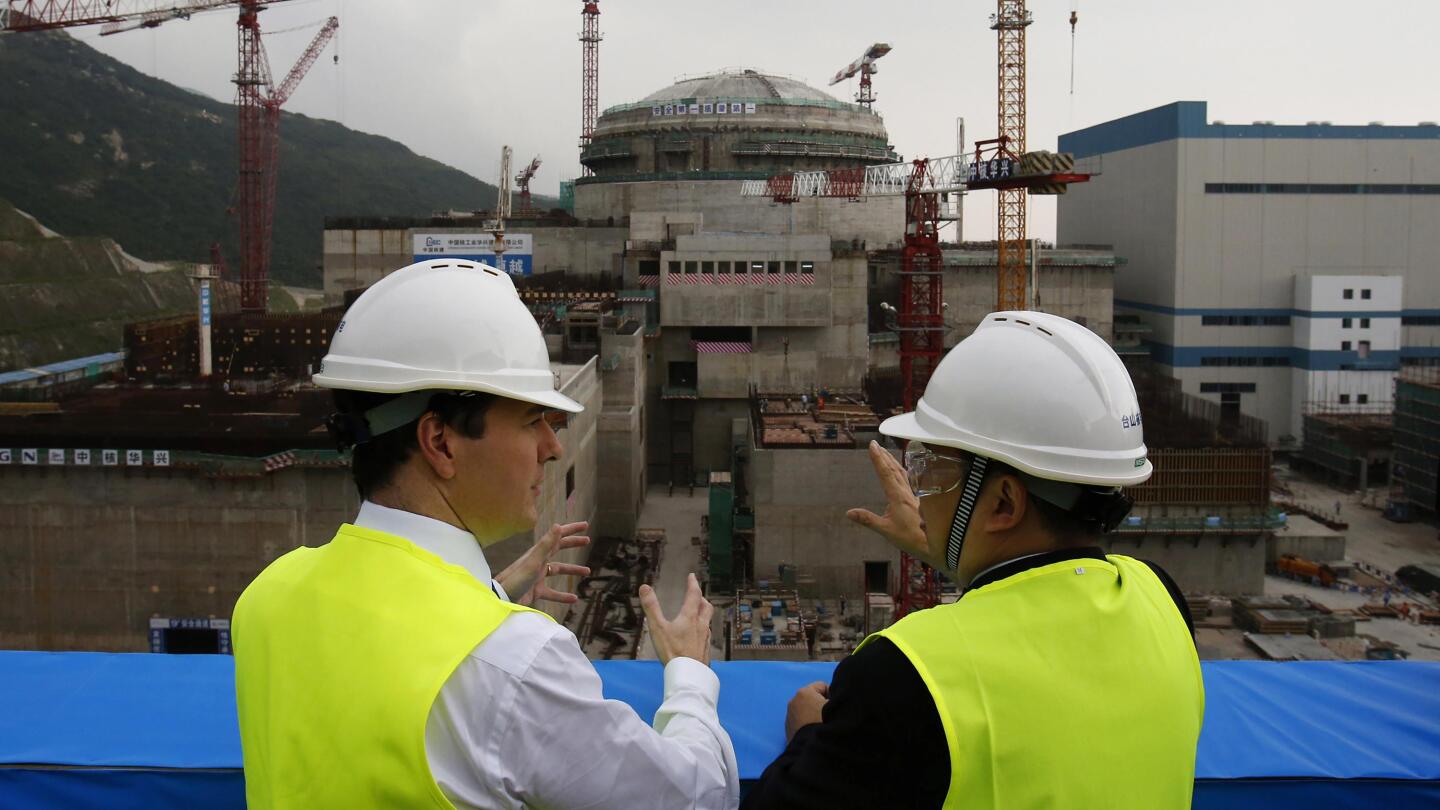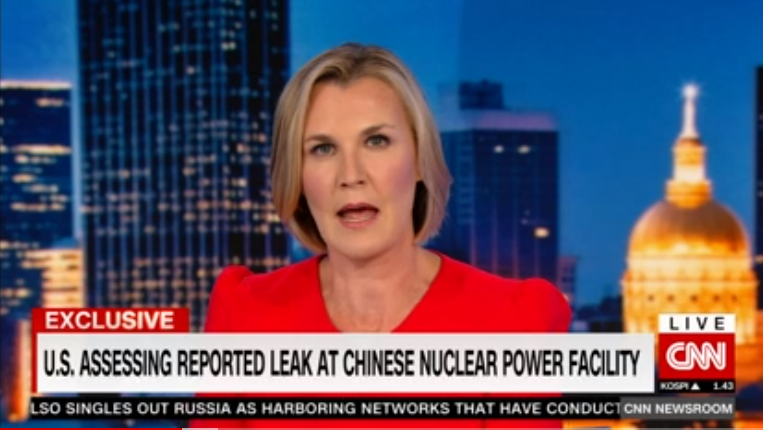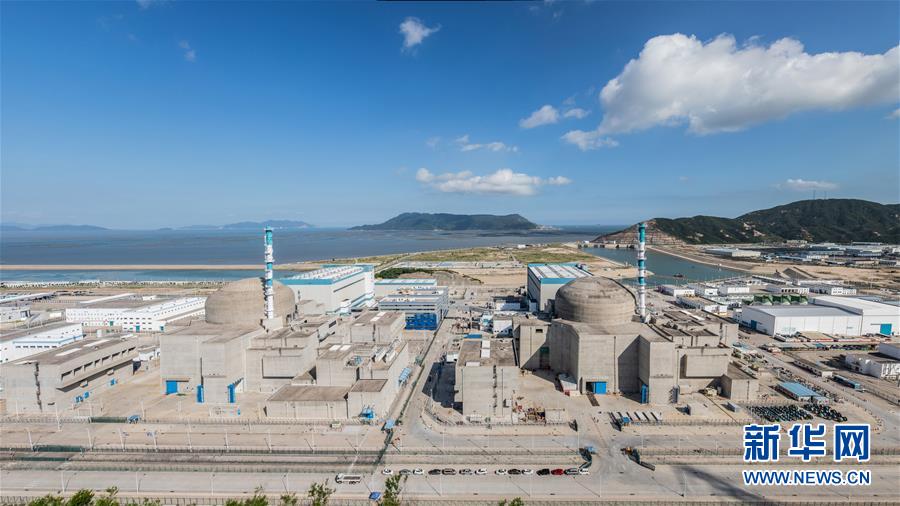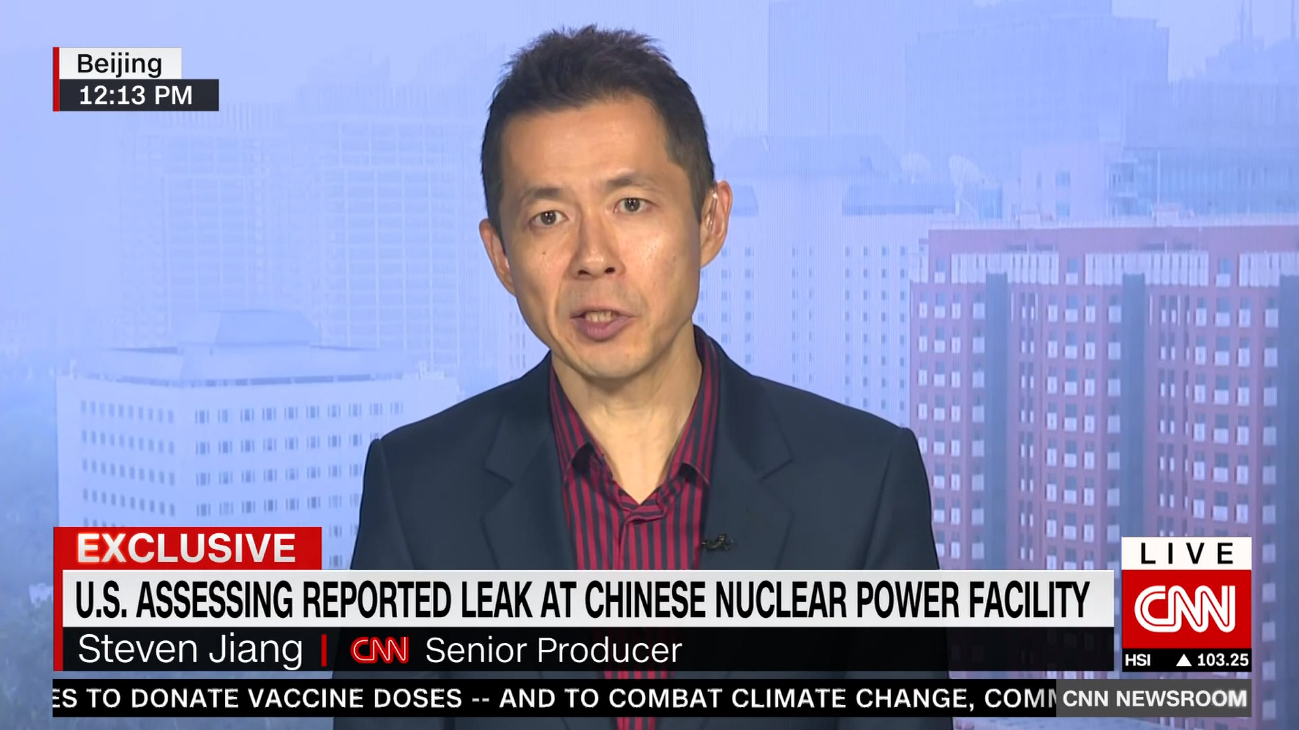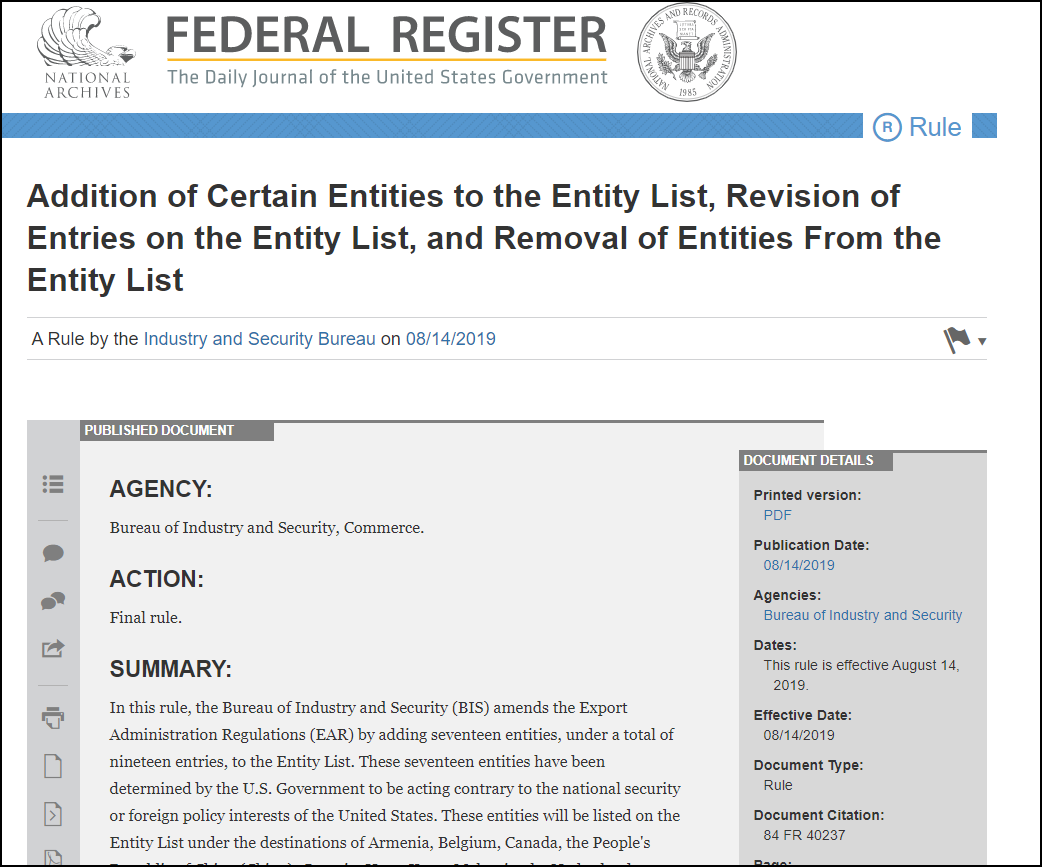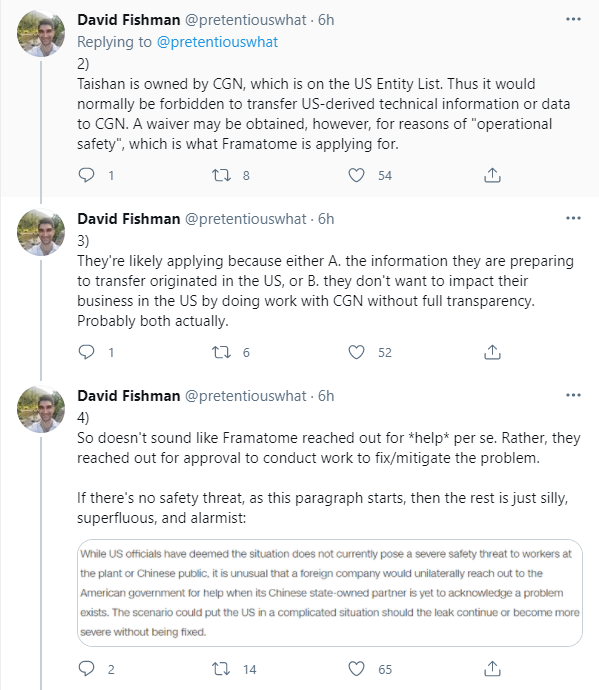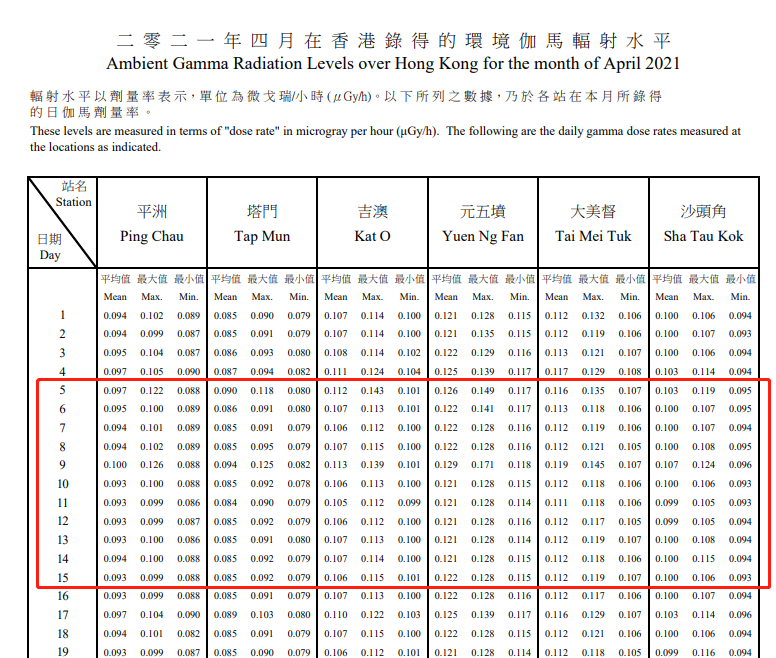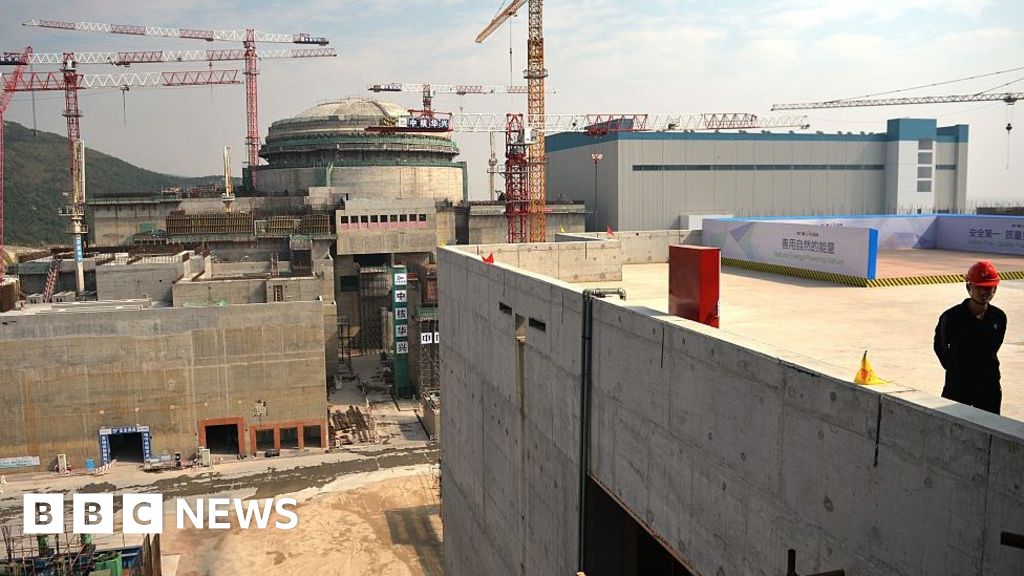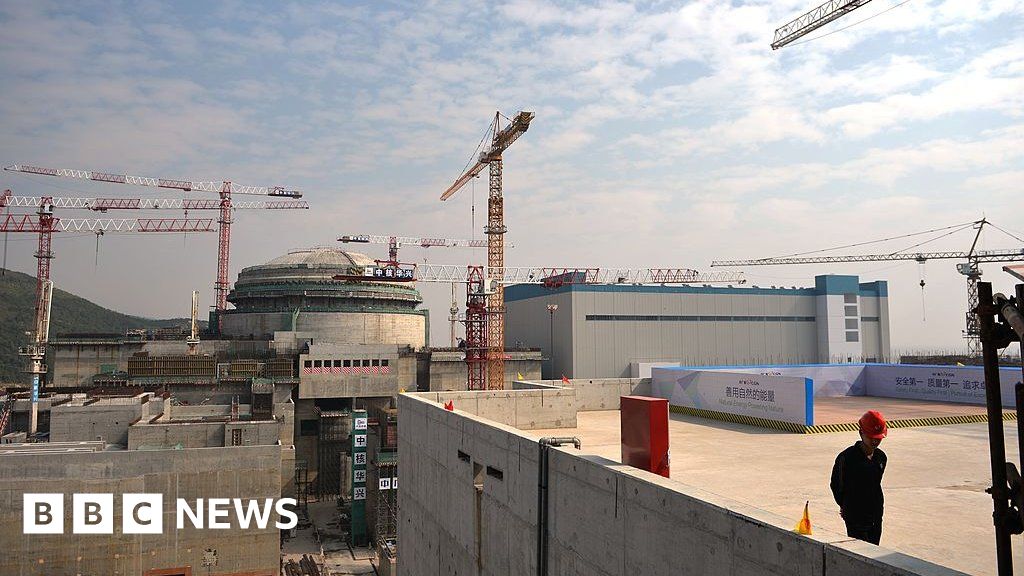share to:
36
2021-06-14 22:56:30 Font size:
A- A A+ Source: Observer Network
Last update: 2021-06-14 23:22:56
[Text/Observer Net Ju Feng]
A level 0 operation incident at the Taishan Nuclear Power Plant in China was written by CNN as a potential accident of the 3.11 Fukushima nuclear accident level. What's even more outrageous is that in the CNN report, China's nuclear safety authorities were portrayed like Tokyo Electric Power Company, deliberately concealing facts and constantly revising government standards, in order to "prevent nuclear power plants from shutting down."
CNN rumors that China's nuclear power plant "nuclear radiation threat"
Guangdong Taishan Nuclear Power Plant is a joint venture project between China General Nuclear Power Corporation and EDF (EDF). In a CNN report on June 13, because "China does not recognize the leak," the French EDF subsidiary responsible for the joint operation was forced to contact the United States for help. The United States has become an image of justice.
is it really like this? Some energy experts explained the truth: China General Nuclear Power was included in the “entity list” of export control by the US in August 2019. Framatome, a subsidiary of the EDF Group involved in the operation of the Taishan Power Station, contacted the US in order to seek an exemption for technology sharing.
After understanding the truth, looking back at CNN's operating methods, I was once again shocked by the low limit of the media. Observer.com noted that CNN did not mention a word about China General Nuclear Power's sanctions by the United States in its report. Not only that, perhaps it is to prevent readers with good memory from discovering flaws. CNN didn't even mention the name of CGN.
Regarding the impact of the incident itself, China General Nuclear Power issued a statement on the 13th stating that the environmental indicators around the Taishan Nuclear Power Plant are normal.
Taishan Nuclear Power Phase I Project Data Map丨Xinhua News Agency
On June 13, CNN spread rumors on the program that the US government was evaluating a report last week regarding the "leakage" of China's Taishan nuclear power plant. Prior to this, Framatome contacted the US government and "warned" that an "imminent threat of nuclear radiation" was about to occur in China.
Where is the source of the report? In CNN related exclusive reports, all sources are unnamed US officials and government documents.
CNN claimed that the Chinese security department had relaxed its radiation monitoring standards "in order to prevent nuclear power plants from shutting down." As for why China took such a big risk, the report did not explain.
The CNN report also stated that the Biden administration has determined that Taishan has not reached the "crisis level." But the report exaggerated that "a foreign company unilaterally contacted the US government for help, this is unusual."
The article declared, "If the leak continues or even worsens, it will put the United States in a complicated situation."
CNN invites reporters based in China to introduce the situation in Beijing. The background is gray (video screenshot)
According to reports, the National Security Council of the United States has already held several meetings in response to the incident in China last week. The Biden administration not only consulted experts from the domestic energy agency, but also contacted the French government. Although the National Nuclear Safety Administration of China has determined in April that this is a level 0 operational incident, CNN is writing in accordance with the level of potential risks of the Fukushima nuclear accident.
Of course, some shadows of the truth can be found in the report. For example, the article states that "Famaton contacted the US government, hoping to obtain an exemption for sharing American technical assistance in order to resolve the incident in China's nuclear power plant." But why should it be exempted? What event? Nothing was mentioned in the report.
What CNN doesn't want to tell you is the most important thing.
First of all, regarding the corporate background of nuclear power plants, CNN only wrote about the French company and operator TNPJVC, which is the Taishan Nuclear Power Joint Venture Co., Ltd. The report did not mention that one of the investors of the joint venture is China General Nuclear Power Group.
Secondly, CNN did not mention that as early as August 14, 2019, the US Department of Commerce added China General Nuclear Power Group and its affiliates to the "entity list."
In 2019, China General Nuclear Power was added to the "Entity List" by the United States
In fact, in 2018, the U.S. Department of Energy issued the "U.S. Civil Nuclear Energy Cooperation Framework with China", which put forward a number of specific restrictions on civil nuclear energy cooperation with China. At that time, the document divided US nuclear energy-related exports into three categories: technology exports, equipment and parts exports, and material exports.
CGN was listed as presumed disapproved export targets in all three types of exports . In 2019, it will directly target China General Nuclear Power.
At that time, the China General Nuclear Power Group told the "Daily Economic News" reporter that it had noticed the relevant report, and after preliminary analysis, its impact on the development of China General Nuclear Power was controllable.
However, it can be seen that it is the United States' own restrictions on nuclear technology exports that paved the way for the US media's hype.
David Fishman (Chinese name: Yu Dewei), a researcher in China's energy field and energy regulation, saw CNN's one-sided report on the 14th and posted a long series of tweets to clarify the truth.
He wrote in a tweet, “Taishan Nuclear Power Plant is (partly) owned by China General Nuclear Power, and the latter is on the US'Entity List'. Therefore, the US technology or data is prohibited from being transferred to China General Nuclear Power. And Framatome is applying for the relevant exemption. , The reason is'operational safety'."
"The reasons why they applied for the exemption are: 1. The information they intend to transfer originates from the United States. 2. They don't want to affect their business in the United States because of their cooperation with China General Nuclear Power. Maybe both are right." Yu Dewei added.
Yu Dewei said, so this matter does not sound like Famatong seeking so-called "help." They are seeking (exempt) permission from the US to fix or alleviate the problem.
Yu Dewei works for the Lantau Group, a well-known energy consulting company in the Asia-Pacific region. He obtained a master's degree from Johns Hopkins University and Nanjing University, and graduated with a major in international relations and energy policy. He has in-depth research and extensive experience in China's energy regulatory mechanism and business research, focusing on renewable energy. And the nuclear power market.
Yu Dewei
According to a report from the National Nuclear Safety Administration on April 9, on April 5, a level 0 operation incident occurred at the Taishan Nuclear Power Plant.
According to the website of the National Nuclear Safety Administration, on April 5, 2021, Unit 1 of the Taishan Nuclear Power Plant was in full power operation. At 11:45, the operating organization implemented the water seal and water filling operation of a certain section of the exhaust gas treatment system as planned. After the initial water seal was filled with water, the water seal did not achieve the expected effect; after the water seal was filled again, the chimney gas radioactive emission dose rate was high 1 alarm. At 13:58:14, the chimney gas radioactive dose rate fell below the high 1 alarm threshold, and the incident ended.
After the incident, the operating organization carried out inspection and verification. The cause of the alarm was initially analyzed. After the initial water seal was filled with water, a small amount of radioactive gas unexpectedly entered the water seal pipeline. It is caused by the exhaust of the ventilation pipes to the chimney; after calculation, the total amount of inert gas radioactivity discharged this time accounts for 0.00044% of the annual emission limit.
According to Article 22 "(9) Radioactive Release and Radiation Exposure Incidents" of the "Regulations on Nuclear Safety Reporting of Nuclear Power Plant Operating Organizations", the incident is defined as an operational incident. During the entire incident, the unit was in a stable state with no other abnormalities. According to the International Manual for the Classification of Nuclear and Radiation Events, this operational event is defined as a level 0 event (minor events that are not of safety significance are called "deviations" and are classified as level 0).
In addition, the environmental radiation monitoring report of Hong Kong in April 2021 showed that on and after April 5, there was no abnormality in the environmental gamma radiation levels in Hong Kong.
On June 13, China Guangdong Nuclear Power issued an announcement stating that the environmental indicators around the Taishan Nuclear Power Plant were normal.
The website of Taishan Nuclear Power Joint Venture Co., Ltd. published the "Operation Status of Taishan Nuclear Power Plant" announcement, stating that recently, some institutions and media have paid attention to and inquired about the situation of Taishan Nuclear Power Plant. The latest status of the two units of Taishan Nuclear Power Plant is as follows:
Two EPR (European Advanced Pressurized Water Reactor) nuclear power units were constructed at Taishan Nuclear Power Station. Unit 1 had a commercial operation on December 13, 2018, and Unit 2 had a commercial operation on September 7, 2019.
Unit 1 of Taishan Nuclear Power Plant has entered the second fuel cycle and is currently operating at full power. Taishan Nuclear Power Plant Unit 2 has completed the overhaul as planned and was successfully connected to the grid on June 10, 2021. This overhaul is the first overhaul of Taishan Nuclear Power Plant Unit 2 after it was put into commercial operation. The safety, quality, and construction period of the overhaul have all achieved the established goals.
Since it was put into commercial operation, Taishan Nuclear Power Station has strictly controlled the operation of the units in accordance with the operating license documents and technical procedures. All operating indicators of the two units have met the requirements of nuclear safety regulations and power plant technical specifications.
At present, continuous monitoring of environmental data shows that the environmental indicators of Taishan Nuclear Power Plant and its surroundings are normal.
